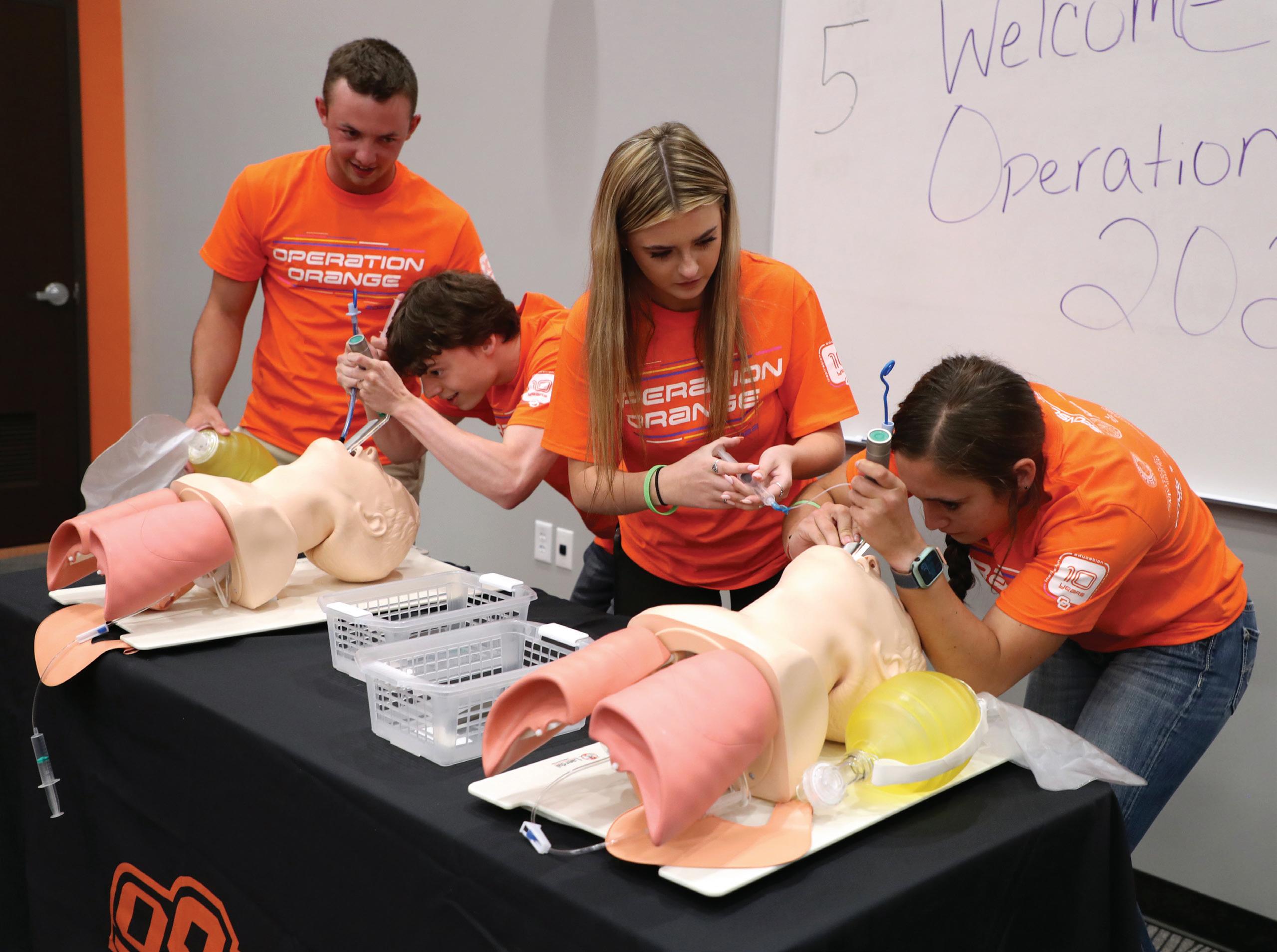
2 minute read
School of Health Care Administration Adds Doctorate Degree
The School of Health Care Administration at OSU-CHS is the largest graduate program at OSU with about 500 people enrolled in the school.
And it will keep growing with the addition of a doctorate in Health Care Administration degree program.
“It was student demand; they begged us for years to offer a doctorate program,” said Interim Chair of the School of Health Care Administration Bavette Miller, Ph.D. “We’ve had so many alumni who want that degree. We’ve been talking about it for 10 years.”
Miller said offering a doctorate in Health Care Administration helps rural and underserved health systems in Oklahoma and across the country, which is the mission of OSU-CHS.
“We have physicians who may be in administrative positions at their clinics and hospitals. Pharmacists, dentists and nurses in similar situations and this degree gives them more education and training on the leadership and administration side of health care,” she said.
Coursework for the DHA program began in the fall 2022 semester with 137 admitted students.
“Our goal was 50 for the fall semester,” Miller said. “We just had so much demand and so many people asking for it — everywhere you can think of in Oklahoma. If that doesn’t fulfill our mission, I don’t know what does.”
Those who have graduated from the HCA master’s degree program at OSU-CHS in the last 10 years will have 30 credit hours automatically put toward the 62-hour DHA program, if admitted.
If it’s been more than 10 years since earning the master’s degree, a pilot program is being developed allowing prospective DHA students to take and pass two refresher courses, enabling them to earn 30 credit hours toward their doctorate degree.
The OSU-CHS DHA program doesn’t require a dissertation or research, but it’s still a doctoral degree program, Miller said.
“We don’t take it lightly. It’s rigorous curriculum, but we go back to our mission to support health care in rural Oklahoma. People who have been in the field for years but don’t have that degree, they come with so much experience,” she said. “This program is getting them what they need to be successful. Getting them the tools they need to do what they want to do.”










